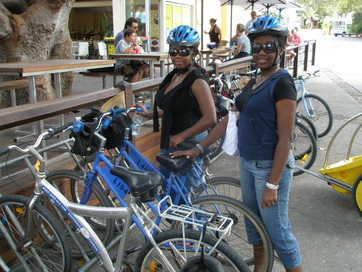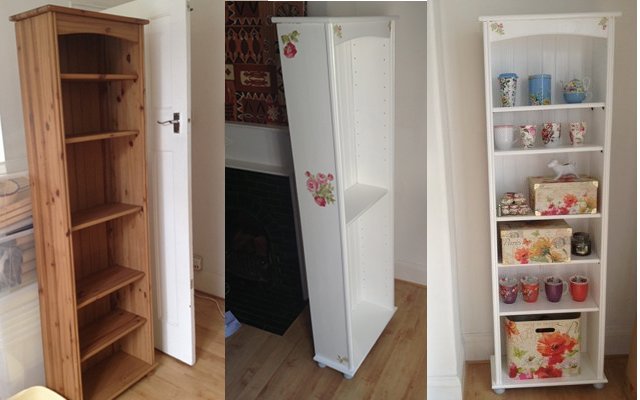 Last week we talked about cutting back on life’s luxuries. Today we carry on the same theme with a focus on children. It’s so easy to spend on kids. Even when you’re dealing with your last few pennies if they ask for something you almost always want to say yes. The unfortunate consequence of this is that they become spoilt, unruly and difficult to control both at home and at school. For kids that love their food they become obese all too quickly. Children are very perceptive; even before the age of three they can have you completely wrapped around their little finger without you realising it. The beauty with children, however, is that it doesn’t cost much to keep them happy. There are so many things you can cut out without compromising at all on their well being. Nappies This is a special bug bear for me. In the long run nappies are far more expensive than terry nappies (matewela) but so many people insist on using nappies even when they can ill-afford them. If you have a maid to wash the nappies that makes it even easier to commit to terry. Nowadays you can even get terry nappies designed to look like a disposable nappy so that they are easy to put on. Don’t write off terry nappies before at least trying them. Hand-me-downs Children grow extremely quickly. Don’t buy clothes if you don’t have to. Ask family and close friends to share their old clothes with you and when your child outgrows them, pass them on to someone else. Your child won’t mind and won’t even know the difference – well, not in the early days at least. Breastfeed One day I was at a friend of a friend’s house and she spent all day on the phone bugging her baby daddy to come and drop some money off for formula! I don’t know if this was a strategy for just hustling him but in the end he did drop off the money and she went off to get the formula when she was perfectly capable of breastfeeding. Breast is best. It’s what God designed so it baffles me when people choose, instead, to spend lots of money on dried cow’s milk for their offspring. Cerelac Another big luxury. Phala is, in fact, more healthy and several times cheaper. For the fortunate few, their children reject Cerelac and prefer likuni phala or even just phala made from mgaiwa from the market. If you can’t really afford Cerelac don’t even start buying it. Get your child used to the cheaper, healthier stuff. Purity Baby Food I’ve never seen anything more ghastly in my life. I don’t know how the marketers convinced us that foods that have been packed into glass bottles and sat on a shelf for weeks or even months are a premium product compared to their fresh alternatives but they have. It is far healthier to buy fresh vegetables and fruits from the market, boil them up and mash them for your kids. It’s also a lot cheaper. This is one area where you can save lots of money immediately. Purity and other pre-packaged foods are inferior goods compared to fresh food. The only plus in my opinion is the convenience. If you plan in advance, you should be able to feed healthier, fresh food to your precious babies. “I highly recommend getting your career established first and then having children.” Arizona Muse
0 Comments
 Last week we talked about shopping around to save money on the things that you buy. I suggested three things – buying in bulk abroad, getting products where they are cheapest instead of just going to your favourite shop and taking advantage of discount days at Game and other stores. This week we’re going to think about things you can live without completely. You get so used to buying what you buy that you never actually stop to think whether it’s that necessary. To help you think through your own shopping list I’ll go through some things me and my friends have cut back on: Rent You could live in a cheaper area and save thousands immediately. Of course, many of us are unwilling to compromise here so we have to look at the small stuff. Juice! For what you get, it’s not cheap at all. I was having a chat with one of my best friends about cutting back and she said, “Can you believe it, we’ve even had to stop buying juice!” I was like, “You were still buying juice? I stopped buying juice ages ago and I live in England where it’s much cheaper!” It is cheaper but I still find it to be poor value for money and completely unnecessary for the weight conscious. Juice packs in a lot more calories than one might suspect. Restaurants I spend A LOT of money on eating out every month. I find it very hard to cut back because I think of it as a “treat” after a week of hard work. However, right now my husband and I have just spent a small fortune extending our house to create a new room and shower room so we decided to stop eating out completely for a couple of months. To stick to our resolve we’ve added treat foods to our shopping list to encourage us to eat at home. For example, buying a frozen pizza that you just stick in the oven when you feel lazy is a lot cheaper than going out for pizza. We wouldn’t normally buy this type of food because it’s not healthy but it does the job of keeping us at home when we want to eat out. Meat News flash: you don’t have to eat meat every day! Some people in town would think this is unthinkable and perhaps an utterly ridiculous suggestion but it’s true. Husbands will especially be against such a suggestion, however, desperate times call for desperate measures. You can also cut back by eating less meat. For instance, unless it’s a very small chicken I only ever eat one chicken part, I find two to be excessive. If everyone in your home has two pieces your chicken will immediately last twice as long by enforcing the one-piece rule. The same goes for sausages and other meats. I normally cook minced meat with beans to bulk it up. Less meat means a heavier wallet and a more attractive waist line! You could go for offal as well. We have started to eat liver and tongue. This has the same taste as meat, is cheaper, and also the best source of iron out there. Lotion This is one thing I would never buy in shoprite or game. It’s usually too pricey unless it’s on offer. The small Indian shops, e.g. Rajani’s in Blantyre can usually give you a better price. Body wash You don’t really need it. Soap is a lot cheaper and it still does the job. Personally, I still use body wash but I generally buy what is cheapest on the shelf. I don’t ever stick to one brand when it comes to body wash. Next week, we’ll have a long chat about cutting back on that most expensive asset, children! “Cut back on your rent or cut back on what you spend on food but never worry about investing money in a good book.” Robin S. Sharma  There are only two ways about it: if you want to have more money in your pocket you need to:
Saving money is the most readily available option for most people: even today you can save yourself money but to make more money you likely need more time. Yesterday I had plans for going into town to buy a few things that I thought I desperately needed but I was also very tired so in the end weariness won and I stayed at home all day and spent no money at all. Of course, we all have to spend some money to keep our homes running but by going to the right places to do your shopping you can save several thousand kwacha monthly. Once a month one of my friends goes to three shops to check the prices of the things she needs to buy and she buys every item where it’s cheapest. She goes to Game, Shoprite and Chipiku, however, I recommend you also try the market because fresh fruit and vegetables are much cheaper there. It seems like a lot of work for a monthly exercise but at the rate that prices are rising it’s so necessary. For most of us salaries are staying stable but prices continue to rise almost daily which means we’re getting poorer and poorer by the day. This shopping-around-routine is much easier than it sounds; you just need to get into the habit. Execution Plan Write a list of everything that you need. Plan your shopping-around day, let’s say you choose the third Saturday of every month. First thing in the morning go to the market and buy all your fruit and vegetables, potatoes and legumes (peas, beans, nandolo). The butchers in the market are also more willing to give you a competitive price for good cuts of meat and fresh fish. Many butchers have a mincing machine so you can save money and control the quality of meat that goes into your minced meat by having it minced in front of you. After you’re done with the market, go to Game and Shoprite. Note the price of the remaining items that you need. For the record, note down how much you saved by buying your fruits and vegetables at the market. After Game and Shoprite make for Chipiku stores or Metro. Most things will be cheaper here so it’s best to leave these store last as you’ll buy your items knowing what they cost at Game and Shoprite. Make The Most of Discount Day Once a week Game have great product discounts. If you find something that you regularly buy on offer buy it in bulk. Around Christmas time Handy Andy was cut so low that several of my friends stocked up for the whole of 2013! Remember though, when you see the word “sale” in shops, what that really means is “spend” because they are trying to lure you in to buy things on sale which you may never have intended to purchase to boost their bottom line. Once there it is difficult to resist many other “bargains” and before you know it your budget is blown. So unless you were waiting for that specific product to come on sale (and you knew the pre-sale price) don’t spend just because of the word “sale”. Make The Most of Business trips Toiletries are atrociously expensive in Malawi. If you have the opportunity to travel then buy them abroad. You will find face washes, body washes, cleansers and toners for up to one-tenth of the price that they are sold for in Malawi. With a little planning and foresight you can and you will save thousands of kwacha. At times it takes a lot of patience but it’s the price you have to pay to make ends meet. “A goal without a plan is just a wish.” Antoine de Saint-Exupéry I thought I would throw this out there because sometimes I think about it.
This article will be most beneficial to those that are just about to enter the world of work. Once you leave school and start work it seems as though life is very focused towards accumulating “stuff”: furniture, crockery, cutlery, electronics (TVs, phones, iPads), so on and so forth. The list is pretty endless because by the time you have everything, you’re already tired of the initial purchases so you start wanting replacements. Even where an item still works, you simply want something newer, a better model or just more! It’s exhausting. You think it will make you happier but really, you’re just happy because you have what everyone else around you has. If they had nothing you also be semi-content with nothing. If you go to your village your don’t find them complaining about the lack of a fridge and a TV, they just want the luxury of three square meals a day. How much faster could you get yourself out of the rat race if you shunned the insatiable quest for “stuff” for proper wealth accumulation? Imagine this world: You get a well-paying job but instead of getting the best car you can afford you get a very basic yet functional car. Better still, you walk or cycle to work most of the time. In your free time you don’t waste money on alcohol and keeping up with the neighbours’ kitchen and living room. Instead, you purchase a few good quality items when you can afford them – no more. You spend a little more to buy durable items because you don’t want to keep replacing them. All excess money is saved so you can buy your own house; your very own piece of real estate. When you eventually own your home you don’t waste money cramming each and every corner and surface with things you can ill afford. Instead, you go for a minimalist, stylish look. You also don’t buy gadgets just because everyone has them. You own a small 12-inch TV screen and peoples’ negative and sarcastic comments do nothing to faze you. You know when the time is right you will get a large TV – if you want one. You would rather have less today for more tomorrow. This is actually my ideal life; it’s the life I used to live. I still had a black and white phone screen when friends who earned less than half of what I did were on the newest smartphones. I aspire toward minimalism and that aspiration helped me save A LOT of money. I liked myself when I was more of a minimalist than I am now. People laughed at my tiny TV and I didn’t care – then, after a certain point I started spending too. Although I only ever spend money that I actually have I think I spend far too liberally and yet, owning more doesn’t make me any happier than owning less did. If anything, it makes me less happy because I could be using that same money to clear my mortgage. My reasoning is, you only live once and I after eight years of being abstemious I should allow myself a little fun. Ultimately, however, I promise you that if you make the conscious decision to live the minimalist life you will be no less happy than you currently are. You might even be more happy as you see you bank balance kaboom! “Too many people spend money they haven't earned to buy things they don't want to impress people they don't like.” Will Smith We Malawians are very spoilt. When a job needs to get done we almost invariably find a someone else to do it for us. Whether it’s painting, electrics, plumbing, decoration, anything – we want someone else to do it.
Why not just do it yourself? Living in the UK I have been amazed at the things that I can do that I never thought I could. Hammers, paint brushes, sewing machines, you name it, I’ve probably used one and strangest of all, I enjoyed it! Opportunity cost means that what you spend on one thing cannot be spent on something else. Even if the amount you are paying the labourer appears small that is still money you can’t spend on something else. Here are a few things you can do to save money; all of them are easy and non-taxing. Sewing. Certain things are very quick and easy to sew provided you can get your hands on a sewing machine. This week I sewed my first ever cushion cover and it actually looked rather good. I saved money on the filling as well by using an old pillow for the job. Granted getting cushions sewn is still relatively cheap in Malawi but things like clothes have started getting expensive and I have a couple of friends that have really sharpened their skills in the clothes making department so much so that they frequently make their own clothes for dinner outings. Knit Baby on the way? Why not sew some of his/her clothing? Create your own designer clothing line just for your child. Paint. My house needs a fresh coat of paint and I’m going to do it myself. Why? Because my budget is limited and I also want to get a new set of mugs and other kitchen accessories. Getting the accessories wins. Up-cycle furniture. The current thing I am into is shabby chic furniture. To get the shabby chic look you need painted wooden furniture and it doesn’t come cheap, no sirree! I happened upon someone who was getting rid of a solid wood bookcase that was still in perfect condition so I asked if I could have it and she said yes. I took it home, painted it and decorated it. The amount I spent in upcycling the furniture is a fraction of what a piece like this would go for. If I wanted to sell it I would fetch 8 to 10 what I spent in upgrading the bookcase. I personally don’t want to sell it because I know it would cost me an arm and a leg to replace it. There are so many things that you can do yourself if you build up your confidence. You might think you can’t sew, knit, paint or up-cycle but when push comes to shove you will be surprised what you can do. I think our current culture not only makes us lazy but it discourages creativity. If you think creatively you can resolve any problems you’re facing, financial or otherwise. As for time, most people have a lot of leisure time. If you have a worker in the house doing most of your chores how can you complain about time? You can pursue most DIY jobs in front of a TV or with the radio for company. “The turning point, I think, was when I really realized that you can do it yourself. That you have to believe in you because sometimes that's the only person that does believe in your success.” Tim Blixseth So, you’re broke and when you look at your budget you simply can’t see a single item that you can do without. Really? Look again. How much are you spending on transport every month? After rent and food this is probably the next biggest expenditure and it’s something that you might be able to control to a greater extent than you realise. Option 1: Buy a Bike! It sounds insane to suggest cycling but it really isn’t that revolutionary. When I was very young my father used to cycle to work for exercise. At the time he was the Managing Director and full owner of Candlex Limited so it wasn’t a money issue, he just felt that he needed the exercise.  My father is very anti-obesity and sees exercise as extremely vital so he didn’t care what anyone thought, he just got on with it. I respect that. Our roads are busier now than they were in the 1990s but still, at least in Blantyre, cycling is very much a possibility in certain areas. Take a look at all the possible routes you can take to work to see if this is possible for you. If you’re scared, try it out to see if you’re overestimating the danger. I started cycling to work myself in 2009 and I dropped 10 kg over about 4 to 6 months plus I saved a lot of money. If there isn’t anywhere for you to shower when you get to work then your colleagues won’t be thanking you for cycling; this is not a realistic option for you. There remain two other possibilities. Option 2: Walk This was my mother’s preferred option. She decided she needed to get more exercise at some point and started walking to work. Her resolve unfortunately didn’t last a week. Apparently someone stopped literally every five minutes to offer her lift and after the third offer she normally gave in! Not everyone will have this problem so if you live 30 minutes to one hour away from town on foot, ditch the car and get walking. Not only will your wallet start to feel heavier but your heart and your waistline will be heavily indebted to you too. Option 3: Share A Car This should be possible for almost everyone. If there are two or three people that live near you and work a short distance from where you work, why not share a car? One day you use your car, the next day you use the other. You would save a lot of money on fuel and on the upkeep of your car. The money saved can be invested in home improvements or in anything else that you desire. Some of you may not even have to look far to car-share. If you and your boyfriend/husband or sibling use separate cars start sharing. If you have errands to run in addition to going to work you just need to communicate with each other to ensure everything gets done. Most budgets will allow for some savings to be made; when things are already tight you just need to look that little bit harder. “The secret of how to live without resentment or embarrassment in a world in which I was different from everyone else was to be indifferent to that difference.” Al Capp  Every couple of years I re-read "The Richest Man in Babylon" by George S. Clason. It's only 150 pages long or so but the principles on money management taught in this book are timeless. I love the book so much that I keep a few spare copies to give away as gifts whenever the opportunity arises. Strange but true: if you put aside one-tenth of your income and only allow yourself to spend nine-tenths you will not struggle any more (or any less) than you did before. "How?" I hear you ask. "I already struggle to make ends meet. There is no way I can save." Try it! That's all I ask. This principle is the start of bringing your money under control. If you only have one bank account create a new bank account because it is almost impossible to save if the money is coming out of the same pot. At the end of every month, when you receive your pay check take 10% off and place it into your LBDT account, the Look But Don't Touch account. Think of this money as though it isn't even yours. That money has been sanctioned by God for a greater purpose. If it makes it easier, look upon these savings in the same way as you do tax - someone else's money. When I started saving in this way I took it very seriously. If someone asked me for money when I only had LBDT funds left, I would tell them I was broke because I was - the money I allowed myself to spend, had been spent. (Next week we will develop a strategy for killing your debts off so that you don't have any issues with creditors.) If you use this strategy don't make the mistake of telling people that you have money but you can't touch it; they won't understand. This is your secret and is the start to building your asset base. I created such a great psychological barrier between me and my LBDT money that I couldn't just spend it with ease. Save First. Prior to making any other plans 10% of your disposable (post-tax) income must be placed in a separate account. So what is this money for? It's for the big goal you are working towards. Buying a plot, building a house, starting a business, whatever that big plan is. That said, in the current inflationary environment it is not advisable to save for too long. You might save for six months then find that your hard-earned savings are made worthless by a steep hike in inflation or a currency devaluation. What's the solution? Break your goal into "baby steps". So, if you are building your own house the next step might be buying a load of bricks or some bags of cement. As soon as the capital in your LBDT account reaches the amount needed to complete step one, spend it and start saving towards step two. When your savings have a purpose it is so much easier to save. Actionable steps for this week:
"Faith is taking the first step even when you can't see the whole staircase." Martin Luther King, Jr |
For 2 years until early 2014 I wrote a weekly personal finance and business column for Malawi's leading media house, The Times Group. The target is middle-class, working African women.
This is a reproduction of the articles that appeared in the weekend edition of Malawi News. Categories
All
Archives
May 2014
|
Heather Katsonga-Woodward, a massive personal finance fanatic.
** All views expressed are my own and not those of any employer, past or present. ** Please get professional advice before re-arranging your personal finances.










 RSS Feed
RSS Feed



